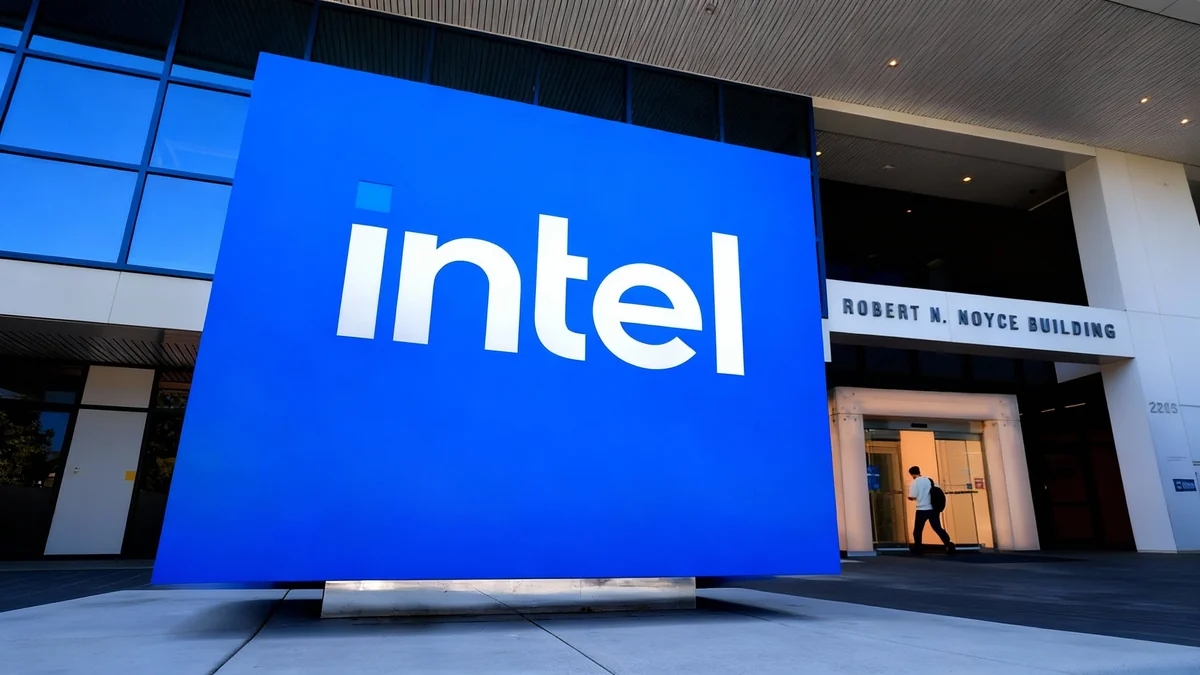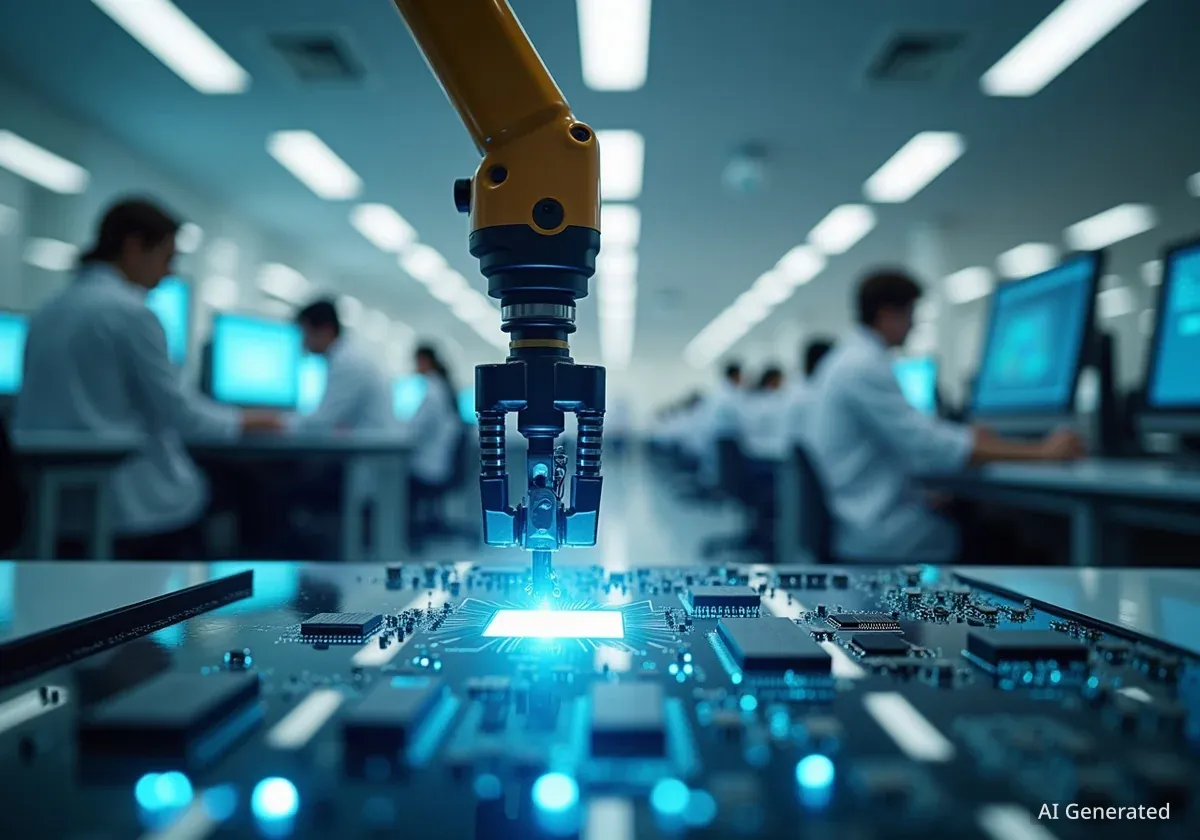Google has announced plans to reduce its workforce by laying off 50 employees at its offices in Sunnyvale, California. The company filed a formal notice with the state's Employment Development Department, indicating the job cuts are scheduled to take place as part of a broader restructuring within the technology sector.
The layoffs affect a range of technical and managerial positions, reflecting a wider industry trend where major firms are adjusting their staffing levels in response to economic uncertainty and advancements in artificial intelligence.
Key Takeaways
- Google is laying off 50 employees from its Sunnyvale offices.
- Affected roles include software engineers, user experience professionals, and program managers.
- The move is part of a larger trend of job cuts across the tech industry, including at companies like Meta, Salesforce, and Microsoft.
- Analysts cite preparation for a potential economic downturn and efficiency gains from AI as primary reasons for the industry-wide reductions.
Details of the Workforce Reduction
Google submitted a Worker Adjustment and Retraining Notification (WARN) to the California Employment Development Department, officially detailing the upcoming layoffs. According to the notice, the 50 affected positions are located at the company's Sunnyvale campus.
The roles being eliminated span several key departments. The list includes software engineers, user experience (UX) specialists, and business program managers. This variety suggests the cuts are not limited to a single project or division but are part of a more strategic realignment of resources.
This recent announcement follows earlier reports about job reductions within the company. In a separate development, it was reported that Google's cloud division also reduced its headcount by over 100 employees, primarily in design-related roles. These combined actions point to a deliberate effort by the company to streamline operations.
A Pattern Across the Technology Sector
Google's decision is not an isolated event. It mirrors a significant trend of workforce reductions that has swept through the technology industry over the past year. Many of the largest and most influential tech companies have announced similar measures as they navigate a shifting economic and technological landscape.
Widespread Industry Adjustments
The technology sector, once seen as a bastion of rapid growth and job security, has entered a period of correction. Companies are reassessing their operational costs and long-term strategies, leading to a wave of layoffs that has impacted thousands of workers across Silicon Valley and beyond.
Other major players in the industry have taken similar steps. Companies that have recently reduced their staff include:
- Meta: The parent company of Facebook and Instagram has conducted multiple rounds of layoffs to increase efficiency.
- Salesforce: The cloud software giant announced it was cutting thousands of support roles, directly attributing the decision to AI-driven automation.
- Microsoft: Despite heavy investment in AI, Microsoft has also trimmed its workforce in various divisions.
- Intel: The semiconductor manufacturer has adjusted its staffing as it navigates market changes and invests in new technologies.
These actions from industry leaders indicate a collective move toward leaner operations, with a dual focus on managing costs and reallocating resources toward high-growth areas like artificial intelligence.
Driving Forces Behind the Layoffs
Analysts point to two primary factors driving the current wave of job cuts in the tech industry: economic caution and the transformative impact of artificial intelligence.
Preparing for Economic Uncertainty
Many companies are bracing for a potential economic downturn. By reducing headcount proactively, they aim to maintain strong financial performance and operational stability. Rob Enderle, a principal analyst at Enderle Group, explained this strategy.
"We’re preparing for a bit of a downturn and companies often like to cut ahead of bad news like that so they can keep their financials solid," Enderle stated.
This forward-looking approach allows companies to control expenses and position themselves to weather potential market volatility without resorting to more drastic measures later.
The Growing Influence of Artificial Intelligence
The second major driver is the rapid advancement and adoption of artificial intelligence. As AI tools become more capable, they can automate tasks that were previously performed by human employees, leading to significant productivity gains.
AI's Measurable Impact
In August, Salesforce CEO Marc Benioff confirmed that the company cut 4,000 support roles specifically because AI technology had automated many of the tasks associated with those positions. This is one of the clearest examples of AI's direct impact on corporate staffing.
AI's capabilities are particularly strong in areas like software development and design. According to Enderle, this is changing the calculus for how many employees are needed in these fields.
"AI is pretty good at coding right now and anything to do with design… as long as someone can describe what it is they want, that significantly increases the productivity of the folks you have in design," he explained. "Unless you’re increasing the workload just as dramatically, you’re going to have too many people."
This suggests that as companies integrate AI into their workflows, they may find they can achieve the same or even greater output with a smaller workforce.
The Changing Landscape for Tech Workers
The recent series of layoffs has altered the perception of job security within the Bay Area's tech industry. For years, skilled tech professionals enjoyed a highly competitive job market with robust demand for their expertise. However, the current environment is marked by greater uncertainty.
The combination of economic headwinds and technological disruption from AI is forcing a re-evaluation of roles and skills. Workers in the technology sector are now facing a reality where continuous adaptation and skill development are more critical than ever.
While companies continue to invest heavily in new technologies, particularly AI, the structure of their teams is evolving. The focus is shifting toward roles that complement AI-driven systems or involve strategic oversight, while positions centered on repetitive or automatable tasks are becoming more vulnerable.





